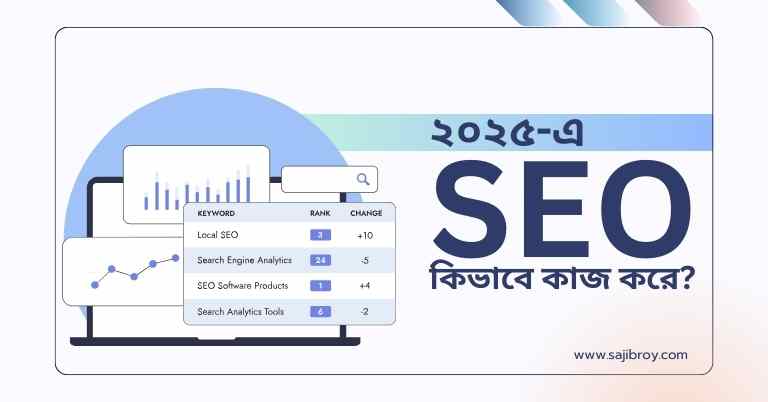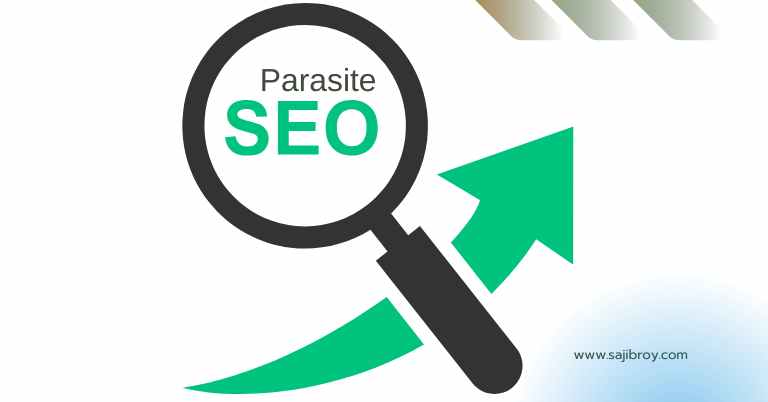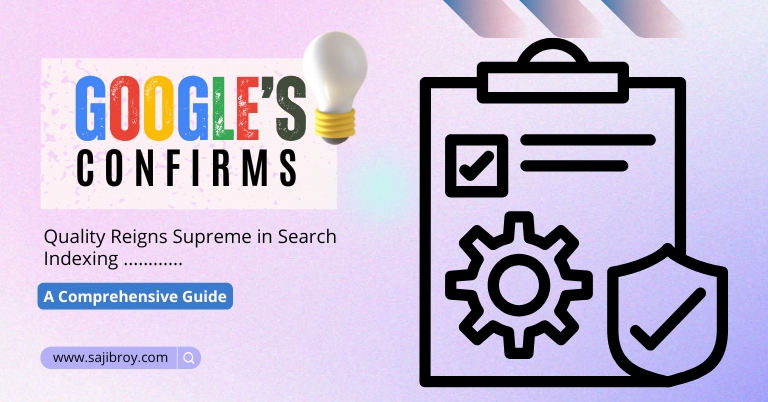In the realm of SEO, keywords are king. They are the bridge that connects your website to the vast sea of online users.
But how do you use these keywords effectively? Where should you place the most searched keywords on your website?
This guide will provide you with the answers. It will delve into the art of identifying trending keywords and conducting an SEO keyword analysis.
We will also explore the strategic placement of these keywords across your website. From your homepage to your blog posts, each page presents a unique opportunity for optimization.
By the end of this guide, you’ll have a clear understanding of how to leverage the power of high-search-volume keywords to boost your website’s visibility and traffic. Let’s dive in.
RELATED TOPICS:
- Keyword Stemming: Is It A Google Ranking Factor?
- Keyword Mapping Strategy: Super Fast SEO Success
- Should I Focus On Zero Search Volume Keywords?
- How Many Keywords Should I Use for SEO?
Let's See the Topic Overview
Understanding the Power of Keywords in SEO
Keywords are the essence of online search queries. They help search engines decide which websites match a user’s inquiry. Using the right keywords can significantly impact your site’s search engine ranking.
Effective keyword usage improves your website’s chances of appearing in relevant search results. It ensures that your site reaches your intended audience at the right moment.
Understanding user intent is vital when optimizing keywords. Are users looking for information, or are they ready to buy? Knowing this helps align your content with what users seek.
High-ranking keywords can drive significant organic traffic. They enhance visibility, leading to higher engagement and conversion rates. Effective use of these keywords must be part of your SEO strategy.
Neglecting keyword research can leave your site in the digital wilderness. To compete, you must optimize with the right terms that align with user searches and intent. Keywords are not just search terms; they’re opportunities waiting to be harnessed.

Identifying Your Highest Searched Keywords
Finding the keywords that are most frequently searched for is the foundation of a successful SEO strategy. The process begins with thorough research to uncover terms that resonate with your audience.
Keyword research tools are invaluable for this task. They reveal insights into search volumes, trends, and competition levels of various keywords. By using these tools, you can identify which keywords best align with your content and goals.
High-search-volume keywords vary across industries and change over time. Hence, staying updated on what’s trending in your niche is crucial. Trends guide you to relevant terms that can boost your site’s visibility.
Consider the user intent behind trending keywords. Determine whether users are seeking information, products, or services. This understanding helps tailor your content to meet user needs effectively.
A strategic approach to keyword selection involves categorizing keywords as follows:
- Short-tail keywords: Broad, one to two words, high volume, yet competitive.
- Long-tail keywords: More specific, less competition, ideal for niche targeting.
- Branded keywords: Include your brand’s name, crucial for brand visibility.
The Role of SEO Keyword Analysis
SEO keyword analysis is a decisive factor in crafting a successful online content strategy. It aids in evaluating how effectively a set of keywords can drive traffic to your website.
This analysis begins with assessing search volume, competition, and relevance of selected keywords. It determines which keywords promise the best return on investment (ROI). This enables businesses to refine their content strategies accordingly.
Implementing regular keyword analysis helps in tracking keyword performance over time. This evaluation can reveal shifts in user interests or competition levels. Adjustments made from these insights ensure your content remains aligned with user demands.
Keyword analysis also identifies opportunities for keyword expansion. It suggests additional keywords or phrases related to your industry. This expansion can increase your reach and attract a wider audience to your website.
Tools for Trending Keyword Discovery
Leveraging specific tools is essential for discovering trending keywords. These platforms provide valuable data to optimize your website’s search engine performance and visibility.
Among the popular tools is Google’s Keyword Planner. It’s a free, powerful tool that offers insights into keyword search volumes and forecasts. It is crucial for discovering relevant keyword opportunities.
SEMrush is another excellent choice, offering comprehensive keyword reports and competitive analysis. It shows keyword difficulty and aids in finding keyword gaps on your website. Moz’s Keyword Explorer and Ahrefs also offer similar features, focusing on search traffic analysis and suggestions.
Here’s a list of useful tools for trending keyword discovery:
- Google Keyword Planner
- SEMrush
- Ahrefs
- Moz Keyword Explorer
Selecting the right tool depends on your specific needs and budget. Access to robust keyword data can guide you in choosing the best keywords to drive traffic and enhance your online strategy. Regularly using these tools keeps your keyword strategy aligned with evolving trends and search patterns.
Strategic Keyword Placement on Your Website
Strategic keyword placement is pivotal in ensuring your website is accessible to search engines and users. For optimal results, each webpage needs thoughtful consideration regarding keyword usage.
Start with your website’s homepage, where you should use broad high-traffic keywords. It sets the tone for your site’s overall theme and helps establish its focus area.
When optimizing product or service pages, choose keywords with high conversion potential. These are search terms that most attract users ready to make a purchase.
Landing pages also present opportunities for keyword inclusion. They work well with targeted keywords, drawing specific audiences for campaigns or seasonal promotions.
Lastly, content-rich pages like blogs and articles should prioritize trending keywords. These pages support organic growth and engage your audience with valuable information. By weaving keywords naturally into your content, you maintain readability and resonance with reader intent.
Homepage Optimization with High-Traffic Keywords
The homepage is the digital front of your business; optimizing it is crucial for visibility. Incorporating high-traffic keywords helps signal to search engines what your website is about.
Select keywords relevant to your industry and encompass broad topics. These keywords should represent your core services or products. This ensures that any interested user can easily understand the essence of your site.
Remember, while integrating keywords, maintain a natural flow in the text. Too many keywords can overwhelm readers and may appear spammy to search engines. Focus on delivering valuable and coherent content that incorporates these keywords seamlessly.
Product and Service Pages: Targeting High-Converting Keywords
Product and service pages require a unique strategy for keyword use. Here, focus on keywords that have a clear conversion intent. Users searching these terms are often closer to making decisions.
Descriptive keywords aligning with the specific product or service can enhance targeting. Include details like brand names, product types, or unique features. These keywords help your pages rank for terms that meet your offering.
Additionally, integrating customer reviews and testimonials with relevant keywords can enhance trust. This not only improves SEO but also supports conversion by offering social proof to potential buyers.
Creating Content-Rich Landing Pages
Landing pages are designed for conversions, be it sign-ups, sales, or downloads. To maximize their potential, infuse them with precise and persuasive keywords.
Keywords should reflect the landing page’s objective, targeting users with clear intent. These pages often align with specific marketing campaigns or promotional efforts.
Ensure that your call-to-action (CTA) resonates with the keyword strategy. This relevance increases your chance of converting visitors into leads or customers effectively. Tailored content with apt keywords aids in guiding users toward the desired outcome.
Blog Posts and Articles: Attracting Organic Traffic
Blogs and articles are essential tools for attracting organic traffic. Incorporate trending keywords to align with ongoing user searches and interests.
Focus on long-tail keywords as they target niche audiences looking for specific information. These keywords have lower competition and higher relevance, making them ideal for depth content.
Maintain engagement by providing valuable insights, tips, or stories centered around your keywords. High-quality content, coupled with strategic keywords, enhances your ranking potential and audience retention. By addressing user queries accurately, you bolster your authority and appeal in your industry.
Enhancing Meta Tags and Descriptions
Meta tags and descriptions play a significant role in SEO and user engagement. They offer a concise summary of your webpage’s content and help search engines understand its context.
Incorporate high-searched keywords into your meta titles and descriptions. This practice not only improves visibility in search results but also attracts more clicks from interested users.
Ensure your meta descriptions provide value and context, encouraging users to visit your site. Well-written, keyword-rich meta tags enhance click-through rates and set expectations for visitors. This small yet effective adjustment can significantly impact overall website performance.
The Importance of Keywords in URLs and Content Structure
Keywords in URLs help search engines and users understand page content quickly. Include relevant, high-searched keywords in your URLs for clearer navigation and ranking benefits.
Keep URLs concise and straightforward. Avoid stuffing them with unnecessary words. A clean and keyword-rich URL enhances both SEO and user experience.
Content structure is also crucial. Use keywords in headings and subheadings to indicate main topics. This practice improves readability and helps search engines grasp the content hierarchy effectively.
Leveraging Long-Tail Keywords for Niche Targeting
Long-tail keywords are usually longer and more specific phrases. They are less competitive and cater to a niche audience, making them invaluable for targeted marketing.
By focusing on these keywords, you attract visitors who are more likely to convert. Users searching with specific queries often have a clear intent, boosting your chances of engagement.
Incorporating long-tail keywords also helps your website rank higher in specific niches. This approach ensures you reach audiences who are genuinely interested in your content or offerings.
Avoiding Common Keyword Optimization Mistakes
Keyword optimization mistakes can undermine your SEO efforts. Common errors include overusing keywords and ignoring user experience. These mistakes can lead to poor engagement and rankings.
Keyword stuffing is a major pitfall. This tactic involves cramming keywords into content, making it sound unnatural. Search engines penalize this behavior, harming your site’s visibility.
Neglecting user intent is another frequent mistake. Keywords should align with what users are looking for. Otherwise, your content may not meet visitor needs, resulting in high bounce rates.
Lastly, relying solely on popular keywords can be a misstep. It’s important to mix in less competitive keywords. This strategy ensures broader reach and captures varied audience interests.
Keyword Density vs. Content Quality
Balancing keyword density and content quality is crucial for SEO success. Overloading content with keywords diminishes readability and user engagement.
Search engines prioritize content that provides value. They favor natural use of keywords within informative and engaging text. Effective content will naturally incorporate keywords without feeling forced.
Achieving a balance between these elements enhances your site’s credibility. It helps maintain user interest and improves your overall ranking potential.
The Pitfalls of Keyword Cannibalization
Keyword cannibalization occurs when multiple pages on your site target the same keyword. This can confuse search engines about which page to prioritize.
This issue can lead to reduced visibility for both pages. Instead of benefiting, your pages may compete against each other, diluting your SEO efforts.
Avoiding keyword cannibalization involves careful planning. Ensure each page targets unique keywords and serves a specific purpose to prevent overlap. This strategy maximizes your site’s potential for high search rankings.
Monitoring and Adjusting Keyword Performance
Tracking keyword performance is vital to your SEO strategy. Monitoring helps identify which keywords drive traffic and conversions. Regular assessments ensure your strategy remains aligned with goals.
Adjustments might be necessary over time. Search trends change, and staying agile is key. This adaptability allows you to optimize for emerging opportunities and continue drawing in visitors.
Regularly analyzing performance data can highlight underperforming keywords. Reallocating resources to more successful keywords can enhance ROI. Additionally, identify keywords that need tweaking or fresh content to improve their impact.
Successful monitoring isn’t a one-time task. It requires ongoing analysis and fine-tuning. This approach ensures your keyword strategy remains effective and competitive in the ever-evolving digital landscape.
Key Performance Indicators (KPIs) for Keyword Success
KPIs provide clear metrics to evaluate keyword performance. They include metrics like organic traffic, click-through rates, and conversion rates. These indicators show how effectively your keywords attract and engage users.
Bounce rate is another critical KPI. A high bounce rate suggests your content may not match user intent or expectations. Lowering this rate can improve user satisfaction and SEO results.
Setting KPIs helps track progress toward your SEO goals. Clear benchmarks guide your strategy and highlight areas needing improvement. This clarity aids in prioritizing efforts where they will have the most impact.
Using Analytics to Refine Keyword Strategy
Analytics tools are crucial for refining your keyword strategy. They provide insights into user behavior and keyword performance. This data helps identify successful areas and those needing improvement.
Google Analytics and other tools offer detailed reports. These reports track keyword rankings and measure engagement levels with your content. Understanding these patterns aids in adjusting your approach for better results.
Using analytics allows for data-driven decisions. This strategy promotes a more focused and effective SEO plan. It ensures your content continues to meet user needs while achieving your website’s objectives.
Conclusion
Effectively using keywords is crucial for a robust SEO strategy. They help improve your website’s visibility and attract the right audience. Properly placed keywords can transform your digital presence and performance.
It’s important to integrate keywords naturally into your content. Prioritize user experience while optimizing for search engines. This balance ensures engagement and ranks well in search results.
Continuously refining your keyword approach keeps your strategy current. Regular updates allow you to adapt to new trends and shifts. Embrace the dynamic nature of SEO for sustained success in your digital marketing efforts.




![6-Month Local SEO Plan [Download Your Complete Proposal Template]](https://www.sajibroy.com/wp-content/uploads/2025/01/6-Month-Local-SEO-Plan-Download-Your-Complete-Proposal-Template.jpg)







